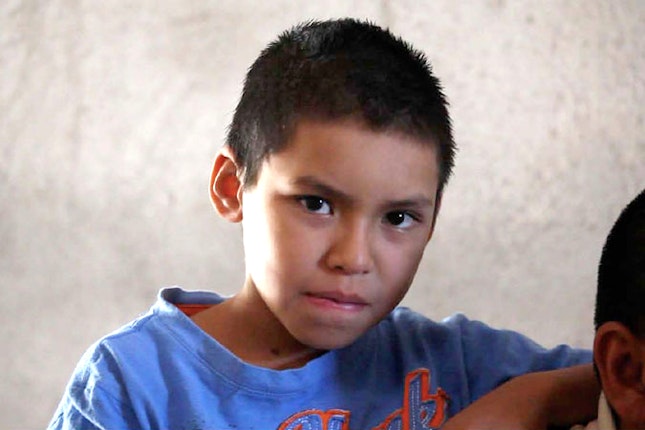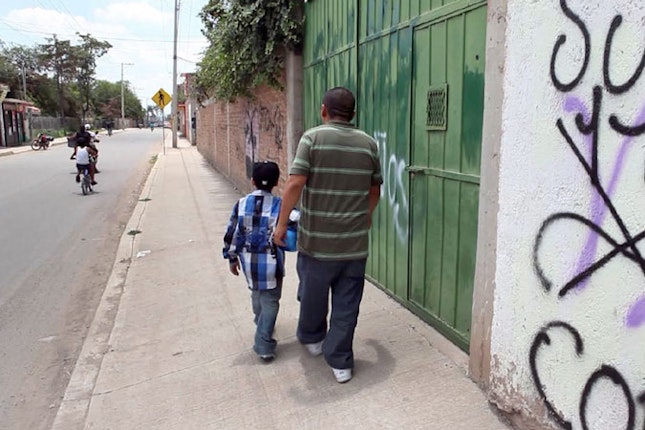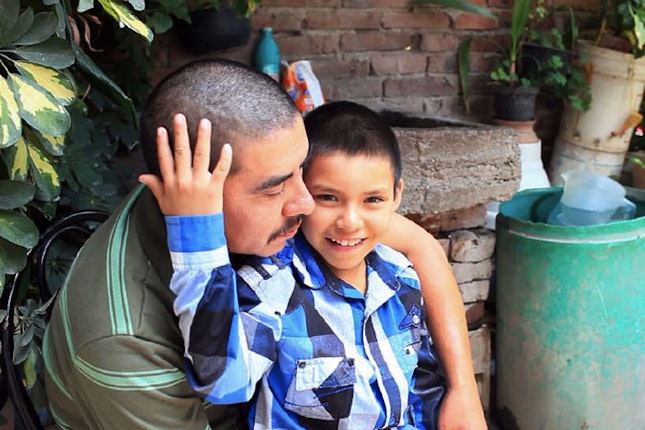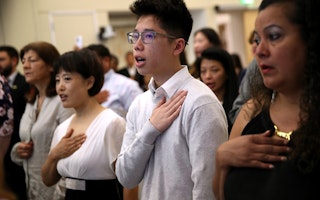Lolo’s Story
By Beth Caldwell
2012–2013 Soros Media Justice Fellows Beth Caldwell, Joel Medina, and Erin Siegal authored this piece as part of a series on the impact certain immigration policies have on families.
Meet Lolo. He’s nine years old, and an American citizen who happily attended elementary school in Long Beach, California, until eight months ago, when he left the country and moved to a small village in central Mexico. Lolo didn’t have to move. Instead, he chose to go, leaving his mother and sister behind, along with the American comforts he’d grown up with: cable TV, new sneakers, American pizza. The reason Lolo left was simple: he didn’t want to lose his father.
Juan, Lolo’s dad, was deported. He decided to return to the town where he was born in Guanajuato, the same town he left 15 years ago to escape hunger and poverty. To him, it was better than risking a 20-year prison sentence for illegally reentering the United States. He’d already been deported once, and had been caught re-entering in an attempt to reunite with his family. He served three years in jail. Now, Juan’s American citizen son is coping with the same circumstances that originally caused Juan to leave Mexico.
We partnered with the Univision program Aquí Y Ahora to produce a television segment about Lolo’s story. You can watch Lolo's story online.
Two years ago, the Urban Institute reported an estimated 5.5 million kids in the United States are the children of undocumented immigrants. Of these children, roughly 4.5 million are American citizens like Gaby and Lolo. According to newly released statistics from Immigration and Customs Enforcement, the United States deported more than 200,000 parents with U.S. citizen children between July 1, 2010 and September 31, 2012.
Born in Mexico, Juan grew up in the home where his parents live today. He first came to the United States to escape the poverty he grew up in. He worked, had children, and became accustomed to living in the United States. However, he was eventually deported due to a criminal conviction for carrying a firearm. After Juan’s initial deportation, his family moved back to Mexico. Eventually they decided to try to return to the United States.
However, Juan was arrested for illegally re-entering the country. He was subject to criminal prosecution and served two years in prison for the crime of illegal re-entry. When he was released, his children Lolo and Gaby, age 12, came to see him in Mexico, and Lolo decided to stay with him. Lolo’s sister Gaby decided to stay with their mother in Long Beach so she could continue attending school in the U.S.
Today, Juan works for $10 per day. Lolo is adjusting to life in Mexico. The quality of life is different—access to health care is limited, and the home the family shares with various relatives has a dirt floor and chicken coops in the kitchen. Meals are different too—usually, there’s not enough food to go around. Lolo has intestinal worms.
Five years ago, Human Rights Watch estimated that over 1.6 million people in the United States had been separated from an immediate family member due to deportation. Since then, the numbers have grown rapidly. President Obama’s administration has deported more people than any previous president in history—over a million people since he took office. Most have been sent back to Mexico.
We reported parts of Lolo’s story for the Univision program Aquí Y Ahora, alongside noted Colombian journalist and Univision anchor Raúl Benoit.
For links to our continuing coverage of deportation issues, check out our website.
Beth Caldwell is a 2012 Soros Justice Fellow.





